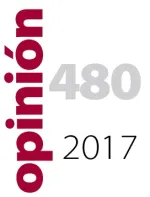Restoring the Franco-German Leadership of the EU

Britain for ever quite unprepared for the ultimate project of the new French president: the restoration of Franco-German leadership in Europe. For centuries, it avoided a concentration of power in Europe and paid a blood price when it failed in 1914 and 1939. It failed again in the post 1945 era, but successfully divided and conquered after it joined the European Union. Britain played France and Germany off against the other and crafted an EU to suits its interests. The result was the single market, the eastward expansion and the never ending opt-outs. Emmanuel Macron wants a bargain in which Germany secures the euro with a fiscal union while Paris agrees to structural reform at home. That will be very difficult to deliver but a coherent, decisively led Europe will put Britain in an invidious position.
In recent years, Berlin and Paris have been poles apart on what to do about the euro. Charles Grant, the head of the Centre for European Reform remarks that “Germany wants more fiscal discipline and new mechanisms to make countries like France and Italy engage in painful structural reform, while France wants more common instruments such as ‘Eurobonds’ and steps towards a transfer union”. Mr Macron will want to prove that he is able to reform France – that implies cutting taxes on jobs, reducing the state’s 55% share of economic output and decentralising collective bargaining. If and when he succeeds he can propose a new concordat on the euro. Much will depend on whether his recently founded party République en Marche and its allies from right, left and centre can secure a majority in next month’s parliamentary elections. General de Gaulle failed to secure a majority in parliament during the first three years of the Fifth Republic (1959-1962) but no one knows whether the new president has the mettle of the great statesman. His rise to date suggests an iron fist in an exquisite velvet glove but only time will tell. He has to date upended the way presidential elections are conducted and won. To redraw the traditional lines of politics in a country as conservative as France – with a small ‘c’, is a gamble without precedent since 1958.
In his relationship with the German chancellor, Angela Merkel, and unlike the manner in which he is portrayed in much of the British press, Emmanuel Macron is not a beggar. A far right Front National victory in France would have spelt political disaster for Germany and Europe. The French voters have salvaged their country’s reputation but also laid to rest, for now the doubts about the fabric of today’s liberal democracies which came to the fore after Brexit and Donald Trump’s victory in the US presidential election. Mrs Merkel, whose Christian Democratic party has been bolstered by recent provincial elections looks in a good position to remain the leader of any future coalition in Germany after next September’s federal elections.
Germany is uncomfortable in the role of de facto ‘leader’ of Europe cast upon her by recent French weakness. Mrs Merkel will not have forgotten the cartoons that appeared in some of Europe’s southern media during the Greek debt crisis, depicting her with a Hitler moustache or a pointed helmet or how Poland and Hungary recently lambasted her refugee policies. She does not relish the thought of going down in history as the chancellor who presided over Europe’s unravelling. She knows that turning a cold shoulder to Mr Macron can only help the extreme right and left in France. Her government will not refuse him all he wants. As Britain exits the EU, Germany needs France more than ever. Too many British conservatives and their rabid xenophobic cheerleaders in the Daily Mail continue to overrate German ambition and under-rate French strength – as if the prism of London in 1940 should define its true self for ever.
Emmanuel Macron is mindful of the anger and Euro scepticism of the working class; he will not only speak to happy France which embraces Europe and globalization. He will push for a “Buy European Act” modelled on US rules that would make it more difficult for non-EU companies to access public procurement deals; greater military co-operation between France and Germany – France could extend its nuclear umbrella eastward, and argue for the creation of a euro zone parliament. That is not something Wolfgang Schaüble, the German economy minister would disagree with. He knows that Germany will have to compromise on some of its economic orthodoxies. How to boost spending in the Euro zone is essential to preserving the single currency: a German-French bond could be a prelude to a ‘Eurobond’. The IMF would no doubt encourage such a move. None of this will happen quickly and, in Berlin, the Social Democrats and the foreign ministry are more enthusiastic about Mr Macron’s proposals that the chancellor. Ahead of the federal elections, he will have to show his mettle domestically while his German counterpart will not want to give any hint that they agree with his more Keynesian thinking.
When she greeted Emmanuel Macron on the red carpet at the German chancellor’s office in Berlin for his first visit abroad since he became president of France on 14 May, Angela Merkel’s smile was even broader than usual. Her CDU party had just won a remarkable victory in Germany’s most important state election in North-Rhine-Westphalia, but she was going to get down to business with a passionate pro-European that had seen off the far left and right opposition to win a decisive victory in France. Mr Macron’s refusal to flex French muscles against Germany, as his predecessors like to do and play as a team is the best news for Mrs Merkel, and their peers in the EU in a long time.
Paraules clau: UE, Lideratge Franco-Alemany, Alemanya, França, Emmanuel Macron, Angela Merkel
D.L.: B-8439-2012